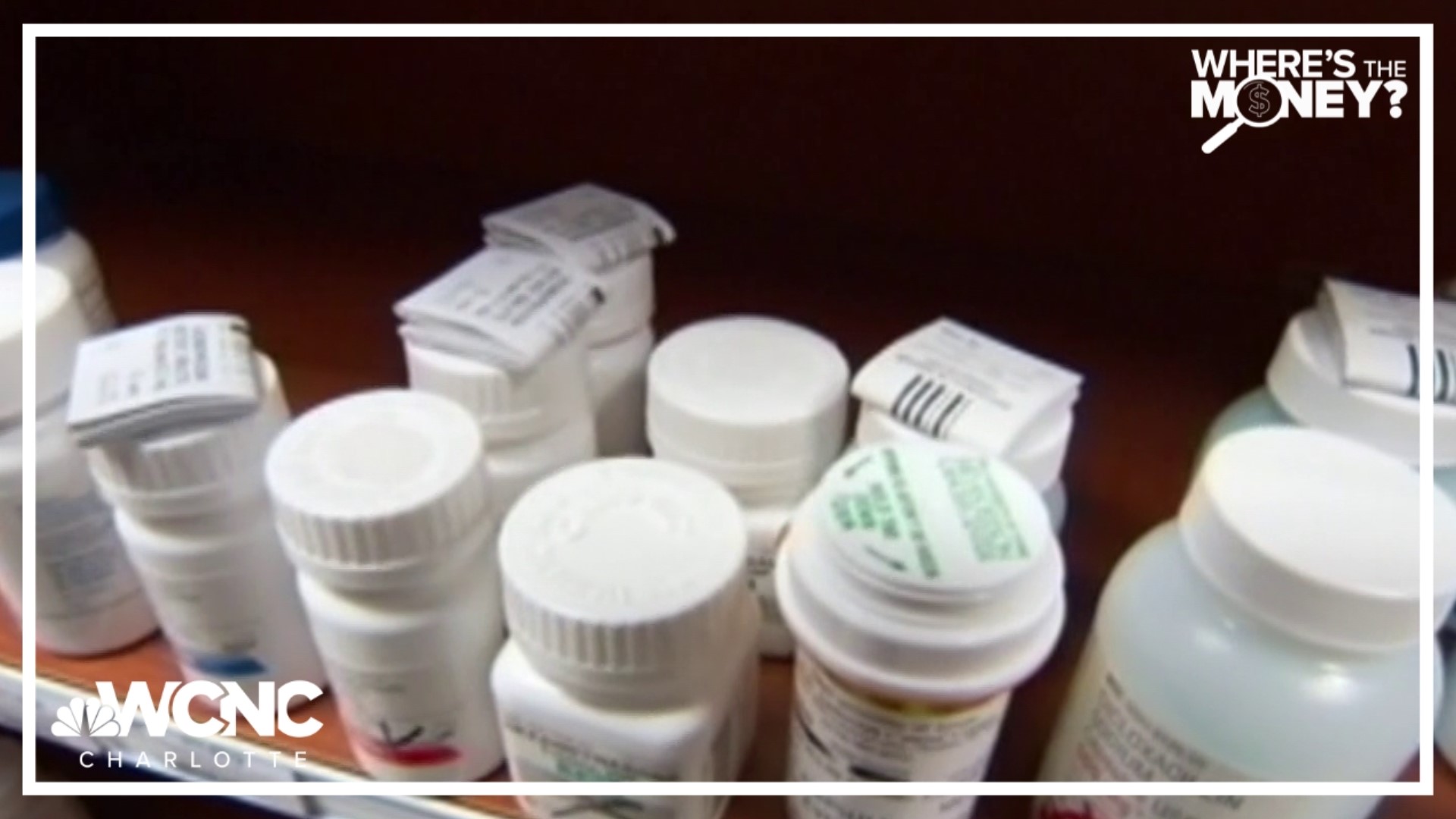CHARLOTTE, N.C. — The North Carolina General Assembly has granted millions of dollars from the state's opioid settlement fund to several addiction treatment centers. However, some advocates think the public dollars should be spent elsewhere.
North Carolina is getting $1.5 billion in opioid settlement funds over the next 18 years.
Of that money, 85% is going to cities and counties to allocate to local programs. For the remaining 15%, the state gets to decide how it’s spent. The recently passed budget gives the money to county programs, health care facilities, and several abstinence-based treatment centers.
One of those centers is Ground 40 in Monroe. Men facing struggles come to live on the faith-based nonprofit's farmland for a second chance at life.
WCNC Charlotte is always asking "where's the money?" If you need help, reach out to WCNC Charlotte by emailing money@wcnc.com.
"We take guys out of prison, out of recovery, out of homelessness," executive director Wesley Keziah explained. "We provide practical and spiritual guidance to get them back on their feet and back out into the community, back in their homes."
Keziah is helping others after overcoming his own addiction struggles.
"I was a heroin addict for 10 years and I tried NA, AA, secular programs," Keziah shared. "I knocked on a lot of different doors, and it wasn't until I heard the gospel of Jesus Christ where I found help and I found freedom from my addiction."
The program focuses on abstinence-based treatment, meaning to get sober, they don’t allow medication.
"We believe abstinence is the best way," Keziah said. "I did try medication in my own journey… So Suboxone, the Methadone clinic, and it felt like it was making me more dependent."
Ground 40 is getting $750,000 from North Carolina's opioid settlement fund. Keziah said the group will use the money to build more facilities and help participants with things like medical bills and court fees.
Other faith-based programs, like Bridge to Recovery and Freedom Farm Missionaries, are getting nearly $2 million combined.
However, other addiction advocates think public dollars should only go to facilities that offer a wide range of treatments.
"When we have programs that are abstinence only, they're really limiting the options that an individual, a North Carolinian, a patient has when figuring out how to tackle addiction," Lee Storrow with the Community Education Group told WCNC Charlotte.
CEG and 12 other organization that work in North Carolinasigned a letter saying they would rather see opioid settlement money go toward evidence-based treatments.
"There are plenty of folks who have benefited from an abstinence-only service," Storrow added. "But I think for programs to explicitly not allow patients to use the gold standard when it comes to ending -- to tackling substance use is just really problematic when we think about dollars being allocated by the General Assembly to go to this service."
Keziah said his program has helped dozens get sober, but he encourages anyone battling addiction to choose what works best for them.
"If you need help, go get help," Keziah said. "It doesn't matter -- the goal is to preserve your life long enough to find the one who can heal it."
Contact Julia Kauffman at jkauffman@wcnc.com and follow her on Facebook, X and Instagram.
WCNC Charlotte's Where's The Money series is all about leveling the playing in the Carolinas by helping others and breaking down barriers. WCNC Charlotte doesn't want our viewers to be taken advantage of, so we’re here to help. Watch previous stories where we ask the question “Where’s the Money” in the YouTube playlist below and subscribe to get updated when new videos are uploaded.

